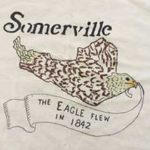
Eagle Feathers #168 – The Raiders
By Bob (Monty) Doherty
Two hundred forty-five years ago this week, the spark that ignited American freedom took place at Griffin’s Wharf in Boston Harbor. It began in 1767 when England imposed upon the colonists the Townshend Acts that taxed glass, lead, paint, paper, and tea.
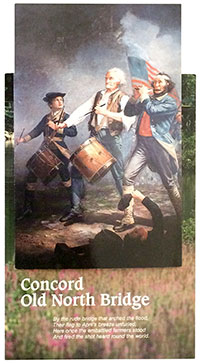
In 1770, after a three-year boycott by the Americans that caused large losses on English imports, the taxes were lifted on everything except tea. Then, in 1773, England granted a monopoly on tea to its East India Tea Company on its colonies. To Massachusetts, this was considered taxation without representation, and they acted.
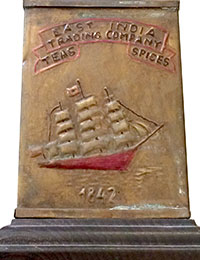
On the night of December 16, 1773, over 150 American colonists, many dressed as Native Americans, raided three British ships. They dumped over 90,000 pounds or 45 tons of the East India Tea into the harbor. It later became known as “The Boston Tea Party.” In today’s money, it would have been valued at over a million dollars.
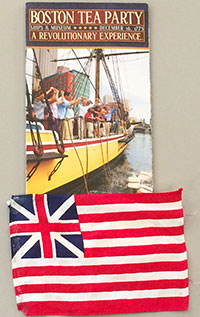
Eight months later, the British conducted its own raid by attacking the Powder House in Charlestown, today’s Somerville, and confiscated much of the American gunpowder stores. Because they didn’t get all the gunpowder, the following spring the British raided again at Concord and Lexington. The Americans then countered at the battle of Bunker Hill, the siege of Boston, and the Revolutionary War that lasted eight-years and won our independence.
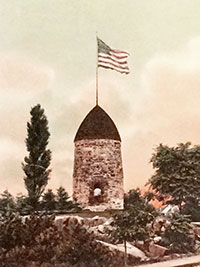
Charlestown Patriot Benjamin Edes was a leading voice pushing for colonial independence. He was considered the father of the Boston Tea Party and the keeper of its secrets. The Tea Party’s plan was hatched in his Boston newspaper office, the Boston Gazette. For the rest of his life, he kept secret the list of the participants in that raid on those three India Tea ships.
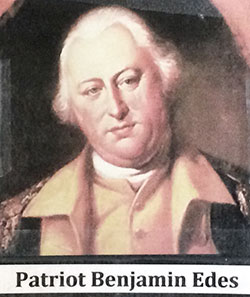
The British ships that were raided flew the Union Flag, which represented the East India Tea Company’s interests in the thirteen colonies. On the other hand, beginning on Somerville’s Prospect Hill and during the early years of the Revolutionary War, the Patriots viewed the thirteen-striped, Grand Union Flag as America’s break from England. They protested taxation without representation … and won!
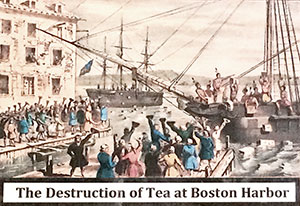












Reader Comments